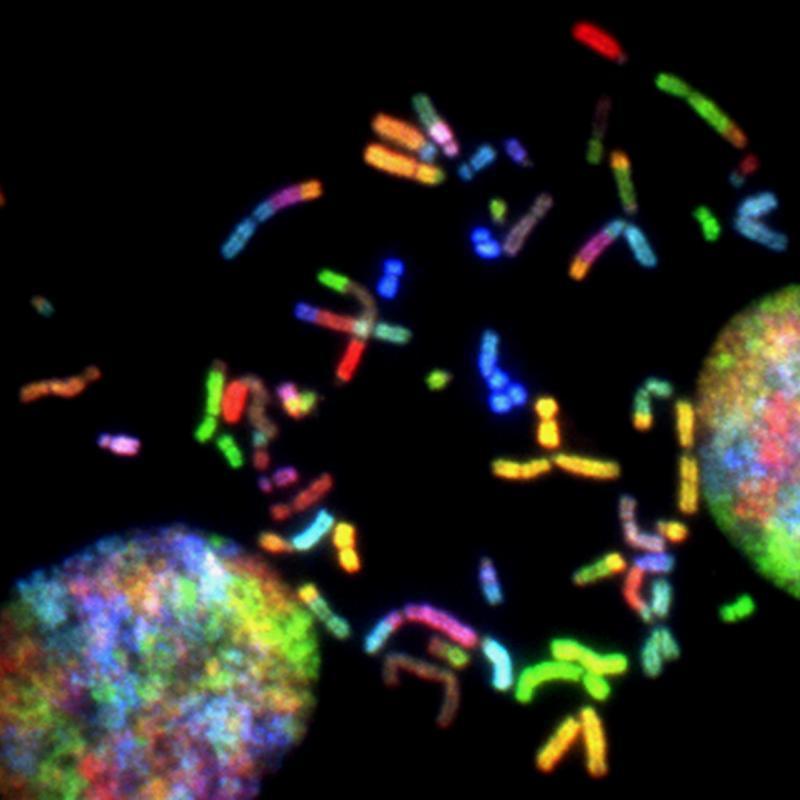
New research continues to be explored through the growing progress in genome sequences but concurrently these advances have produced a diversity of new issues to be addressed.
The National Academies of Sciences, Engineering, and Medicine has convened a Roundtable on Genomics and Precision Health that brings together leaders from academia, industry, government, foundations and associations, and representatives of patient and consumer interests who have a mutual concern and interest in addressing the issues surrounding the translation of genome-based research for use in maintaining and improving health. The mission of the Roundtable is to advance the field of genomics and improve the translation of research findings to health care, education, and policy.
At a recent webinar, members of the Roundtable on Genomics and Precision Medicine discussed how to make genomics and precision health research more equitable and accessible.
Duke Center for Applied Genomics & Precision Medicine (CAGPM) Director, Geoffrey S. Ginsburg, MD, PhD, moderated the session, which was hosted by the National Academies of Science, Engineering and Medicine. He highlighted four areas of focus for the roundtable: driving innovation in the field, shaping policy dialogue, achieving equity, and spurring adoption of genomics-based tools and precision health approaches.
He called for ensuring that participants in research studies are ancestrally and socially diverse. This way, results can benefit and inform more populations.
The genetics workforce should also reflect a population’s racial and ethnic makeup. Currently, 90% of genetic counselors identify as white, according to the National Society of Genetic Counselors’ most recent professional status survey.
“Without the diversity of studies, knowledge, and information, health disparities that exist within our country and across the world will only increase,” Bonham said. “We have to address this issue and grapple with it as a scientific community if we truly want to be equitable.”
But even if the research grows diverse, there are still barriers to the implementation of genomic and precision health services that need to be eliminated, said Mira Irons, MD, president and CEO of the College of Physicians of Philadelphia.
Many healthcare providers do not have the genomic expertise required to provide appropriate care for their patients. Most of the public is unaware of the role genomics play in their health.
“[Genomics] is moving from the rare disease world into mainstream health care,” Irons said. “How do we educate the healthcare workforce to implement and adopt genomics into their practices?”
Joyce Tung, Ph.D., vice president of the 23andMe research team, revealed that she found very few women and people of color who are known as innovators in the field. It’s an important finding when you consider how crucial support systems are for innovators.
“It’s extra difficult for people from communities that have historically been, and continue to be, marginalized,” she said. “And that’s a real shame because we’re going to be much more likely to bring the benefits of innovation to wider communities if we have people representing those communities among innovators.”
An audience member asked how genomic medicine is helping patients who are concerned about inequitable care after getting test results.
Subsequent care is a challenge, but is an essential consideration when people develop genomic programs, Irons said.
“That really means going to primary care doctors and making sure they understand what the genetic testing means,” she said. “We need to make sure there is guidance available to primary care doctors so that the results of genomic testing can actually be translated into care.”
Another audience member asked how to get children and teenagers interested and excited about the field. Tung said that one method is making the science behind genetics more approachable and exciting. At 23andMe, for example, they made video cartoons on basic concepts in genetics. During the pandemic, views soared as teachers showed them to students during remote learning.
“We should at least expose people at a young age to science and genetics,” Tung said. “We should be shooting to help them realize that genetics is not weird, but rather wonderful.
The Roundtable challenges the broad community of stakeholders and experts within the United States and globally to engage with their work to continue to impact the field of genomics and precision medicine over the next decade.
Read recent paper on “The National Academies’ Roundtable on Genomics and Precision Heath: Where we have been and where we are heading" in The American Journal of Human Genetics.